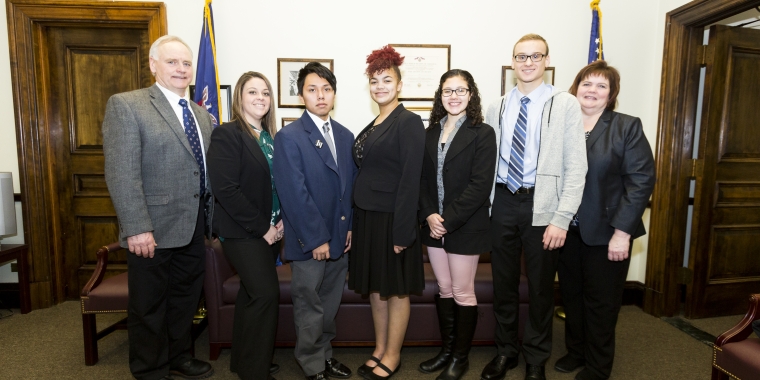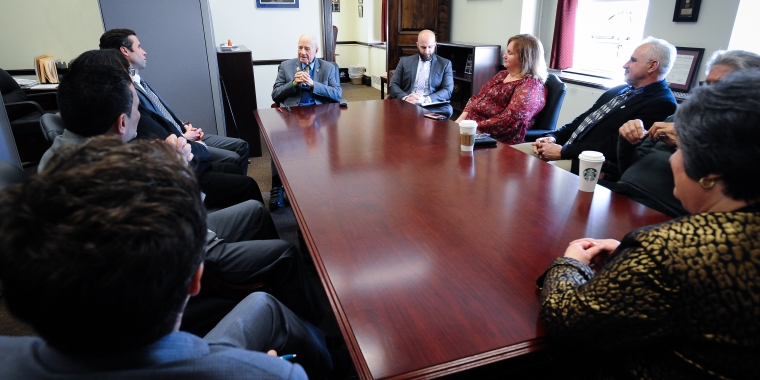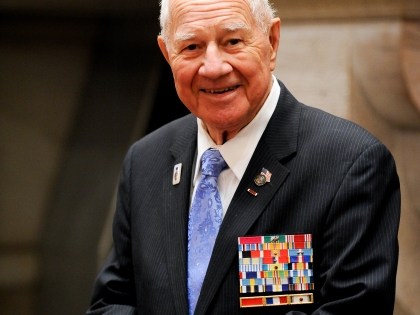
Senate Approves Bills To Get Racetrack Vlt’s On Line
William J. Larkin Jr.
March 17, 2005
The New York State Senate today passed two bills, sponsored by Senator William Larkin (R-C, Cornwall-On-Hudson), that would help get video lottery terminals (VLTs) up and running at Yonkers and Aqueduct Raceways. Both bills (S.2594 & S.3276) address concerns cited by the courts related to the distribution of VLT revenues and would make an investment in the race tracks to generate additional revenue for education in New York State.
"New York is losing hundreds of millions of dollars in revenues that could be going into education because VLTs are not up and running at the two biggest race tracks in the state," Senate Majority Leader Joseph L. Bruno said. "We’ve been talking about this problem for almost two years since the Courts ruled the previous distribution system was unconstitutional. The two bills the Senate passed today address the distribution issue in slightly different ways, but both would fix the problem and I urge the Assembly to join us in taking action."
"New Yorkers go elsewhere for recreational gaming, horse betting, and entertainment," said Senator Larkin. "The gambling dollars people are already spending in neighboring states could be benefiting New York. VLT’s could generate hundreds of millions of dollars for New York State education programs, which was the original intent of the program. The legislation we passed today creates a workable reimbursement fee for the vendors who will be running the VLT’s while providing a mechanism to successfully garner additional funding for the state. In addition, changing this formula will enable our race tracks to upgrade their facilities, and offer a variety of cultural and recreational forms of entertainment so that they can become true tourist destinations. Ultimately, this strategy will help keep lost revenue here in New York."
One bill passed today (S.2594) would alter the flat VLT vendor's fee that is currently set at 29 percent of the total amount wagered after paying out prizes (92 percent of the total amount wagered) to a new sliding scale fee. This sliding scale fee arrangement recognizes that the percentage of overhead costs incurred by smaller race tracks that install VLT machines will be a larger percentage than for larger tracks located near major metropolitan areas. More
Under this bill, the vendors fee would be 32 percent for the first $50 million annually, 29 percent for the next $100 million annually, and 26 percent for any amount of money collected that is above $150 million.
In addition, to help promote new VLT facilities and to raise additional money for education, the vendor would receive an 8 percent marketing allowance for the first $100 million collected annually, and 5 percent for total revenue wagered above the first $100 million wagered at the vendor's race track after payout of prizes.
In addition, to address concerns raised by the courts, the bill would eliminate the transfer of any VLT revenue to support horse purses or state operated and sanctioned horse breeding funds.
The Senate also passed a bill (S.3276) that would increase the VLT vendor reimbursement to be received by the race track vendor from 29 percent to 34 percent of the money received in VLT proceeds after payouts are given to VLT patrons. This additional amount can be devoted towards advertising and marketing vlt operations.
To avoid any potential constitutional problems, the amount of money for marketing, purses and breeder funds will come from the general fund, and the VLT money will all go to support state education programs, except for the 10 percent to support the Division of Lottery’s expenses and the expenses of the vendor race tracks (20.25 percent). The Division could not use these funds until an equal amount is taken from State general fund revenues and distributed to horsemen and breeders to help support the racing industry in New York State.
Both bills contain provisions that ensure that any VLT contracts at Aqueduct would continue to be honored by any potential future successor to NYRA.
The bills were sent to the Assembly.
Share this Article or Press Release
Newsroom
Go to NewsroomMount Saint Mary College Visits Albany
February 13, 2018
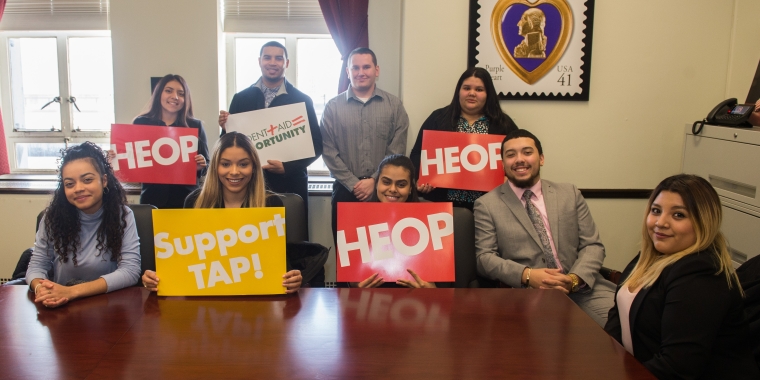
Senator Larkin Passes Legislation to Assist Veterans
February 6, 2018
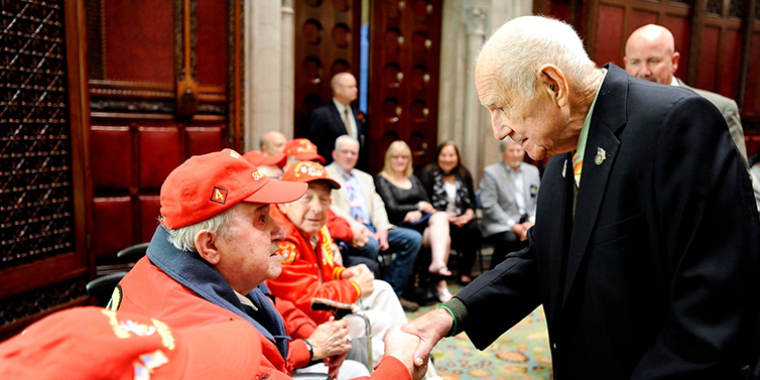
Orange County Youth Bureau Visits Albany
February 6, 2018
